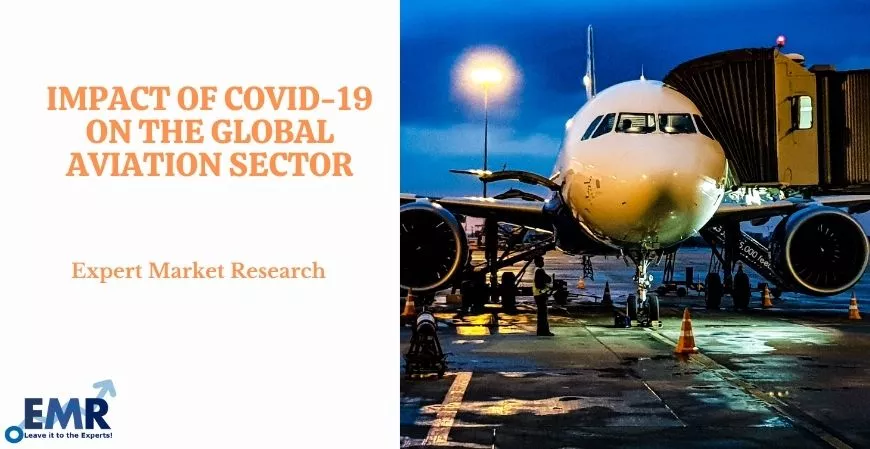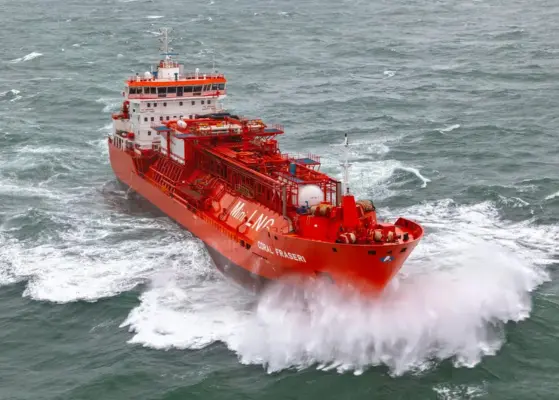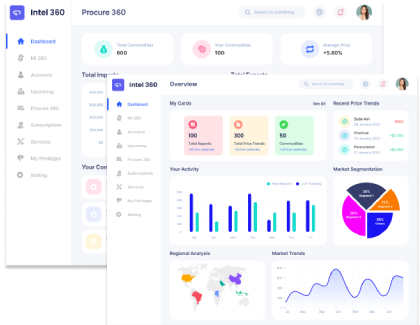Air transport accounts for a small portion of GDP but is inextricably linked to the activities of other sectors, particularly airports and aircraft manufacturing – collectively referred to as the "aviation industry" and is a critical enabler of many other economic activities.
According to International Air Transport Association (IATA), passenger air transport measured as revenue passenger kilometre was down 90% year-on-year in April 2020 and still down 75% in August. Furthermore, the drop-in economic activity and trade had an impact on freight, which was nearly 30% lower year over year in April and was still about 12% lower in August. The size of the shock has put pressure on airline companies' liquidity buffers, even if it only accounts for a small portion of their costs, and fluctuating oil prices have reduced airlines' operating costs. IATA further estimates that industry passenger revenues could drop severely due to the severity of travel restrictions and the expected global recession.
Compared to the projected baseline (pre-COVID-19 forecast for 2020), the impact of the COVID-19 crisis removed more than 1 billion passengers for the entire year 2020, representing a significant decline in global passenger traffic.
The COVID-19 crisis has had a far greater impact than any other crisis in the airline industry's history. Significant decrease in passenger numbers resulted in flight cancellations or planes flying empty between airports, resulting in massively reduced revenue for airlines and forcing many to lay off employees or declare bankruptcy. To mitigate their losses, some have attempted to avoid refunding cancelled trips. For example, GoAir placed the majority of its employees on unpaid leave in April 2020. In addition, Air India reduced employee salaries by 10% in April.
According to Bloomberg, approximately USD 200 billion of market value has been lost in the United States aerospace industry alone. Rolls-Royce, a British multinational engineering company, has significantly reduced all activities except essentials within its aerospace facilities. With passengers not flying, airlines have been forced to make significant schedule cuts. The early retirement of older models, such as British Airways' decision to retire the 747 fleets, is a more recent effect of this prolonged level of demand reduction. Defence spending, on the other hand, has remained stable over time, protecting some supply chain positions.
The current COVID-19 crisis hit an already challenged supplier landscape that, especially in the North American market, is stressed by the Boeing 737 Max situation. The effect is a reduction in demand, supply interruptions, financial pressure, and workforce impairment, resulting in one of the largest global shocks in the industry's history. OEMs Airbus and Boeing reducing production forecasts up to 50%. Oil companies supplying fuel are hit because fewer passengers mean fewer flights, which means lower fuel demand, lower fuel prices, and lower, if any, return on investments. Similar impacts also apply to aircraft manufacturers in building and maintaining airliners, parts suppliers, ground transportation of aircraft-related goods, catering, and a thousand other knock-on effects that are often hard to quantify.
The International Civil Aviation had estimated reduction in the international passenger capacity for India. The companies dealing with manufacturing products required by the aerospace and defence industries have felt a negative impact of the pandemic. The loss figures of India's two largest airlines can be used to estimate the impact of this disruption. IndiGo recorded net loss Rs 2,884 crores and Rs 1,194 crores in the first and second quarters of 2020, respectively. SpiceJet recorded net loss of Rs 600 crore and Rs 112 crore in the first and second quarters of the same year, respectively. The international sector, which is expected to grow only slightly after falling by 80-90% pre-Covid. Profitability is not expected to return until the end of 2021, according to industry experts. It is expected that aerospace and defence exports may have a turnover of Rs 35,000 crores by 2024.
According to a global survey conducted by Deloitte, 84% of aerospace and defence (A&D) executives said they consider leveraging new digital technologies as key to market differentiation. Still, only a quarter of the aerospace and defence companies are currently using these technologies and tools to access, manage, analyse, and leverage data from their digital assets to inform decision-making in real-time. Subsequently, the global commercial aircraft order backlog totalled 14,100 aircraft. This is only a slight decrease from the 14,300 orders received in 2019. However, with more cancellations during the second wave and a bleak outlook for new orders in 2021, backlog levels are expected to fall.
Low cargo rates and the unprofitability of the cargo business have caused many airlines to abandon or reduce their dedicated cargo freighter fleets over the last ten years. During COVID-19, however, cargo has proven to be a lifeline for the aviation industry. Prior to the pandemic, cargo accounted for about 12% of the sector's total revenue; that figure tripled last year. In addition, E-commerce sales soared during the pandemic, while many passenger flights responsible for delivering around half of the total air cargo were grounded. As a result, cargo yields increased.
Passengers' behaviour had also changed due to the COVID-19 crisis, travel restrictions, and the ensuing economic crisis, resulting in a dramatic drop in demand for airline services. Operating costs for both airlines and airports are likely to rise in the short run due to additional health and safety requirements (e.g., disinfection, PPE, temperature checks, or viral tests) before they can be passed on to customers. Furthermore, if implemented for air transportation, social distancing measures may force a decrease in the passenger load factor.
Even as lockdowns and domestic travel restrictions are eased in many countries, international travel restrictions, a contraction in economic activity, and changes in transportation behaviour by cautious consumers may prevent a return to pre-crisis demand levels. Therefore, commercial air traffic is expected to recover slowly.
Although the industry is reopening, the recovery appears to be taking longer than expected, resulting in more job losses and airline failures in the absence of appropriate support. However, suppose the sector opens responsibly, putting measures to protect travellers, reduce costs, increase efficiency, and ensure a quality customer experience based on employee health and customer safety. In that case, recovery would be much more faster.
COVID-19 has led the industry towards the need for more resilient, flexible, and adaptable supply chains. Over the last three years, executives have agreed that emerging technologies such as artificial intelligence, the internet of things, automation, and wearables have accelerated the pace of automation. Increased adoption of technology and work-from-home routines are expected to significantly reduce the demand for business travel. Solar-powered airports, electric bussing, green buildings, and recycling can engender significant savings in operating costs and could become the norm for the best performing airports.
As part of the UAE's rapid digitalisation of the aviation sector, Etihad Airways and the air transport communications specialist SITA conducted a trial on the use of facial recognition technology to identify and authenticate crew members. The goal of this initiative is to replace check-in kiosks, which require crew members to use their employee ID cards as a form of authentication.
Passengers will be able to travel without touching anything with a recent announcement made by Amadeus and Norwegian airport operator Avinor. Avinor, which operates 44 airports, is testing touchless technology that allows passengers to check in, drop their bags, go through security, and board their flight without having to touch anything.
Emirates has also teamed up with the International Air Transport Association (IATA) to be one of the first airlines to test the IATA Travel Pass. This mobile application lets passengers create a 'digital passport' to verify their required pre-travel COVID-19 test or vaccination and manage all travel documentation digitally and seamlessly throughout their airport journey.
Other technological advancements that could be seen include UV wands or UV robots that can sanitise air cabins in between flights much faster, more efficiently, and safely than disinfectants. Alternatively, germ-killing coatings could be used, and lavatories could be made self-cleaning between visits. There may be real potential for a shift towards the use of smaller aircraft for regional travel, which could, in turn, provide the impetus for fledgling electric aircraft technology and even feed into the development of air taxis.
Financially solvent governments such as the United States, Germany, Singapore, United Arab Emirates, and Japan, among others, have stepped in to provide relief to many national carriers through grants, soft loans, credit guarantees, along with other forms of support. Over the last two decades, high-growth markets like India have built the capacity to meet consistently rising demand for air travel. Capacity has been built or is being built in some airports with significant costs already incurred. While the long-term outlook for growth in underrepresented air markets like India remains positive, airport owners and investors will face significant challenges in monetising assets or repurposing them to generate shareholder value over the next three to four years.
Even as lockdowns and domestic travel restrictions measures have started to ease in many countries, international travel restrictions, the contraction of economic activity, and changes in transportation behaviour by cautious consumers may prevent a return to pre-crisis demand levels.




















Share